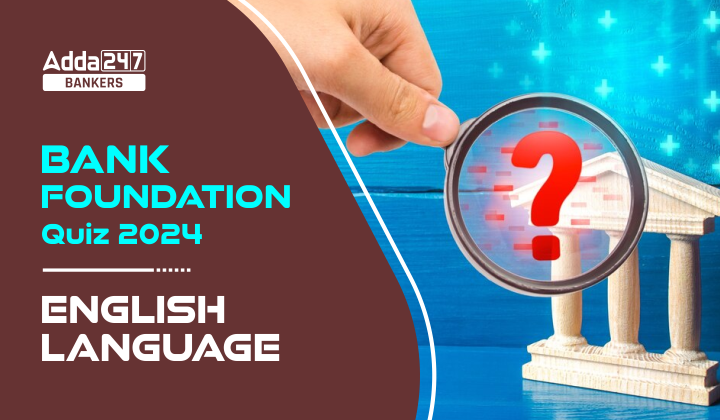Directions (1-5): Read the following passage carefully and answer the questions given below it. Certain words are given in bold to help you locate them while answering some of the questions.
Everyone makes mistakes. But if you perceive your mistake in the right way, despair can never arise. The reason for your sadness and despair is that you do not want to accept your mistake but are compelled to do so. When you are caught red-handed and have to reluctantly admit it, you feel sad, depressed and you develop complexes. This occurs when you intend to defend your ego and not honestly own up.
Your suffering is not because you did what you shouldn’t have done, but because the image you have created gets tainted. He who honestly accepts his mistake so that he can uproot it would never go into depression or inferiority.
You ask for atonement for a wrongdoing and you perform it, too. But the next time you get a wrong desire, you feel, ‘let me fulfil it and later I shall ask for atonement and cleanse myself’. Your focus remains on the deed and not on the impurity latent in your intention. Thus, by falsely repenting and taking atonement, you try saving your image but not move towards transformation. There is no regret for your faulty state. You try covering up the mistake.
In the name of repentance, you try defending your ego. If the list of your mistakes becomes long, your ego feels hurt and you think, ‘Am I really so bad that I became angry? I am not, it’s just that such a situation arose, and I happened to act like that.’ You repent and become the ‘good’ person you think you are. This so-called repentance does not transform you but makes arrangement for you to stay the way you are. You keep repeating the same mistake but do not bring any change in your inner state.
Ouspensky in his book ‘Strange Life of Ivan Osokin’ writes about Ivan Osokin who goes to a mendicant and says, ‘On the whole I am a good person. Yet mistakes have been committed. Walking through an unknown path, I fell in a pit. I am not the kind who would fall, but the path was unfamiliar, there was darkness of the night and a pit. May be someone pushed, and I fell in the pit. If I get to relive the past and walk again, I want to prove that I would never fall in the pit.’ The mendicant said, ‘I make you 12 years younger.’ Osokin said, ‘You see, in 12 years I will become another person. I was wishing I could get another chance, so I don’t repeat the mistakes I had committed in ignorance.’
Osokin returns to the mendicant after 12 years and confesses, ‘I seek forgiveness. The mistakes I had committed in the past were not because the path was not known. The mistakes were mine alone; because I have repeated the same mistakes. I have realized that I have been living exactly the way I had lived in the past.’ The mendicant said, ‘I knew it will recur. Because the mistakes are not in the action but in the intention.’
Not just Osokin but you too live a strange life; you live your life in the same way as you have been living. Even as you age, you keep repeating the same mistakes, because the doer remains untransformed. You do the same things you did in the past and so you remain the same as you were. Life gives you many chances. But you cheat yourself by blaming the circumstances.
Q1. When would a person feel sad and depressed as per the context of the passage?
(a) When a person reluctantly admits her/his mistake.
(b) When a person intends to defend her/his ego instead of honestly owning up.
(c) Options (a) and (b)
(d) When a person perceives her/his mistakes in the right way.
(e) Options (a) and (d)
Q2. Which person would never go into depression or inferiority?
(a) The one who reluctantly admits his/her mistakes.
(b) The one who perceives his/her mistake in the right way.
(c) The one who honestly accepts his/her mistakes.
(d) Options (b) and (c)
(e) None of these
Q3. What does a person do to cover up his/her mistake?
(a) The person atones for her/his mistakes.
(b) The person honestly accepts her/his mistakes.
(c) The person goes into depression or inferiority.
(d) The person despairs for not being an ideal person.
(e) None of these
Q4. Among the following options, what are the characteristics of false repentance?
(a) The focus remains on the deed but not on the impurity latent in your intention.
(b) The person tries to defend his/her ego.
(c) False repentance doesn’t transform a person but makes an arrangement for him/her to stay the way he/she is.
(d) The person keeps repeating the same mistake but do not bring any change in her/his inner state.
(e) All of the above.
Q5. Among the following options, what is the correct reason for a person to keep repeating the same mistakes?
(a) A person gets angry upon committing a mistake.
(b) Because the mistakes committed by a person are not in the action but in the intention.
(c) People and circumstances around a person don’t allow him/her to transform.
(d) Because the person gets depressed after realizing that she/he committed a mistake.
(e) None of the above.
Solutions:
S1. Ans. (c)
Sol. The answer for the question can be derived from the first paragraph. It is mentioned that ‘When you are caught red-handed and have to reluctantly admit it, you feel sad, depressed and you develop complexes. This occurs when you intend to defend your ego and not honestly own up.’
So, both options (a) and (b) are correct and hence, the option (c) is the correct answer
S2. Ans. (d)
Sol. The correct answer for the question can be derived from the first paragraph and the third paragraph.
In the first paragraph, kindly read the sentence ‘Everyone makes mistakes. But if you perceive your mistake in the right way, despair can never arise.’
In the third paragraph, kindly read the sentence ‘He who honestly accepts his mistake so that he can uproot it would never go into depression or inferiority.’
From the above, we understand that both the options (b) and (c) are the correct answer.
Hence, the option (d) is the correct answer.
S3. Ans. (a)
Sol. The answer for the question can be derived from reading the third paragraph.
‘Thus, by falsely repenting and taking atonement, you try saving your image but not move towards transformation. There is no regret for your faulty state. You try covering up the mistake.’
The options (b), (c) and (d) are completely irrelevant and out of context.
Hence, the correct answer is the option (a).
S4. Ans. (e)
Sol. The characteristics of false repenting can be derived from reading the third and fourth paragraphs.
In the third paragraph, ‘Your focus remains on the deed and not on the impurity latent in your intention.’
In the fourth paragraph, ‘In the name of repentance, you try defending your ego’;
‘This so-called repentance does not transform you but makes arrangement for you to stay the way you are. You keep repeating the same mistake but do not bring any change in your inner state.’
From above, we understand that, all the given options, i.e., the options (a), (b), (c) and (d) are correct.
Hence, the correct answer is the option (e).
S5. Ans. (b)
Sol. The answer for the question can be derived from the sixth paragraph.
‘The mistakes were mine alone; because I have repeated the same mistakes. I have realized that I have been living exactly the way I had lived in the past.’ The mendicant said, ‘I knew it will recur. Because the mistakes are not in the action but in the intention.’’
The other options (a), (c) and (e) are completely irrelevant.
Hence, the correct answer is the option (b).





 English Language Quiz For Bank Foundatio...
English Language Quiz For Bank Foundatio...
 English Language Quiz For Bank Mains Exa...
English Language Quiz For Bank Mains Exa...


